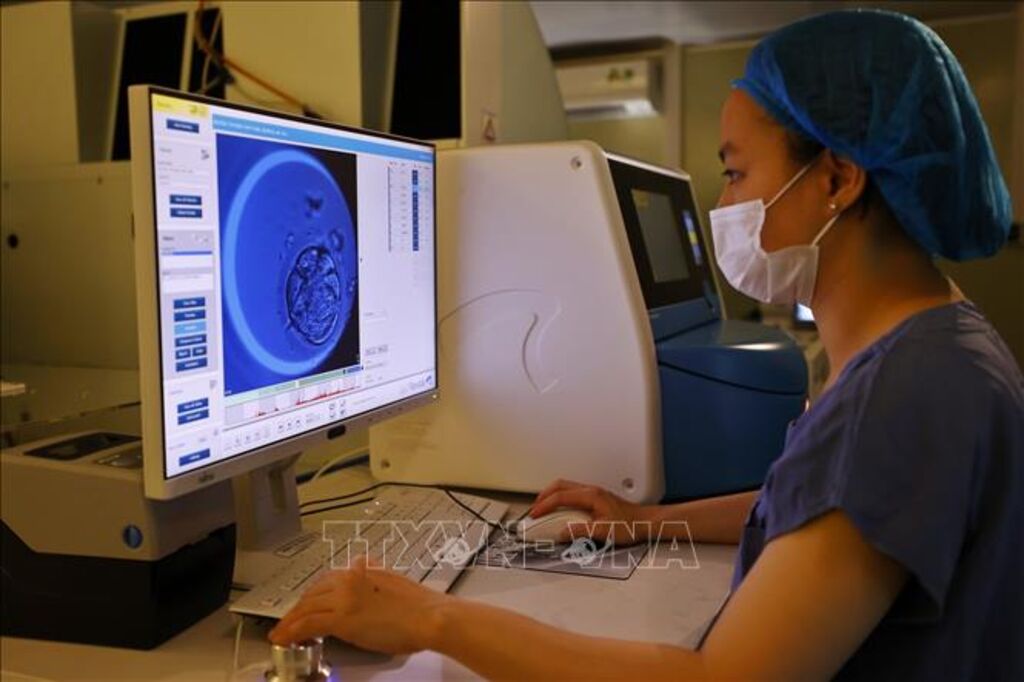 |
| Time-lapse embryo culture system closely monitored at an embryo culture lab__Photo: Minh Quyet/VNA |
Issued on July 15, Decree 207/2025/ND-CP affirms single women’s right to use assisted reproductive technologies (ARTs), such as egg freezing and IVF, without needing medical justification. The regulation also outlines conditions for humanitarian surrogacy, reflecting a broader shift toward recognizing diverse family structures and reproductive autonomy.
Broader access to ARTs
The new regulation replaces previous rules under Decree 10/2015/ND-CP, which required a specialist doctor’s recommendation for single women to undergo IVF. Now, simply wishing to have a child is sufficient for eligibility. This shift brings Vietnam’s policy more in line with modern social trends, accommodating women who choose not to marry but wish to become single mothers.
Under the Decree, single women also have the right to receive donated embryos if they lack viable oocytes of their own, further expanding reproductive options.
Principles for ARTs and humanitarian surrogacy
Article 3 of the Decree sets out guiding principles for the application of ARTs and humanitarian surrogacy, including:
- Sperm, oocyte, and embryo donations must be made at licensed storage facilities.
- Each donation may only be used to help one woman or one couple have a child.
- The identities of donors and recipients must remain anonymous.
- ARTs are available to infertile couples, those with medical needs, and single women who wish to have children.
- The privacy and personal information of intended parents, surrogate mothers, and children born through surrogacy must be legally protected.
Conditions for licensing humanitarian surrogacy facilities
In addition to expanding access to ARTs, the Decree sets clear criteria for medical facilities licensed to perform humanitarian surrogacy. These requirements aim to ensure ethical practices and protect all parties involved in the surrogacy process.
According to Article 12, a facility must have at least two years of IVF experience and must have performed at least 500 IVF cycles per year in the two years preceding its application. The facility must also have a medical consultant who is an obstetrician-gynecologist;A psychological consultant with a university degree in psychology or a certified medical doctor with a psychology certificate;A legal consultant with at least a bachelor’s degree in law. While the medical consultant must be a staff member of the facility, psychological and legal consultants may be employees or affiliated experts as permitted by law.
The dossier and procedures for requesting approval for a medical facility to perform altruistic surrogacy techniques are those required for modifying the operation license as specified by the law on medical examination and treatment, which must include documents proving the facility’s satisfaction of the above conditions.
The Minister of Health, Minister of National Defense and Minister of Public Security are empowered to decide to license medical facilities under their respective management to perform altruistic surrogacy techniques.- (VLLF)









